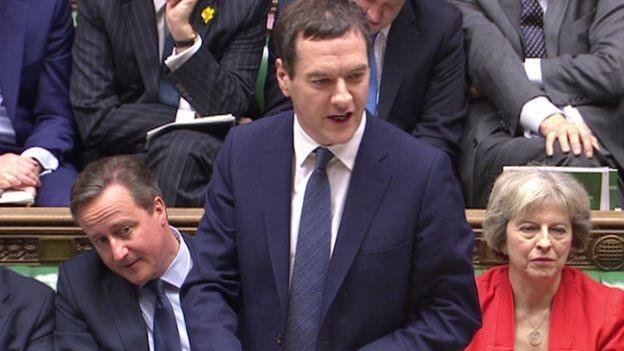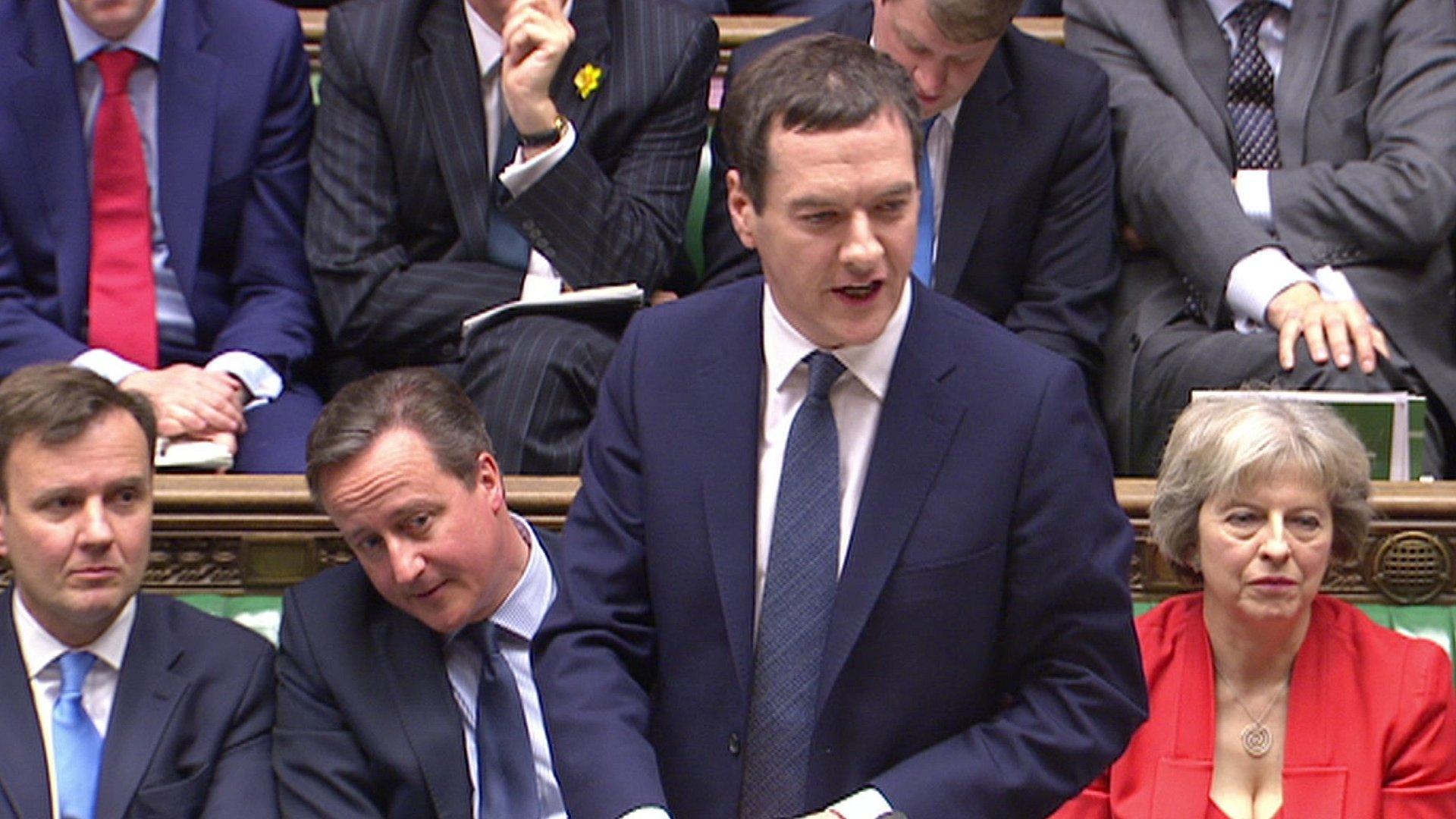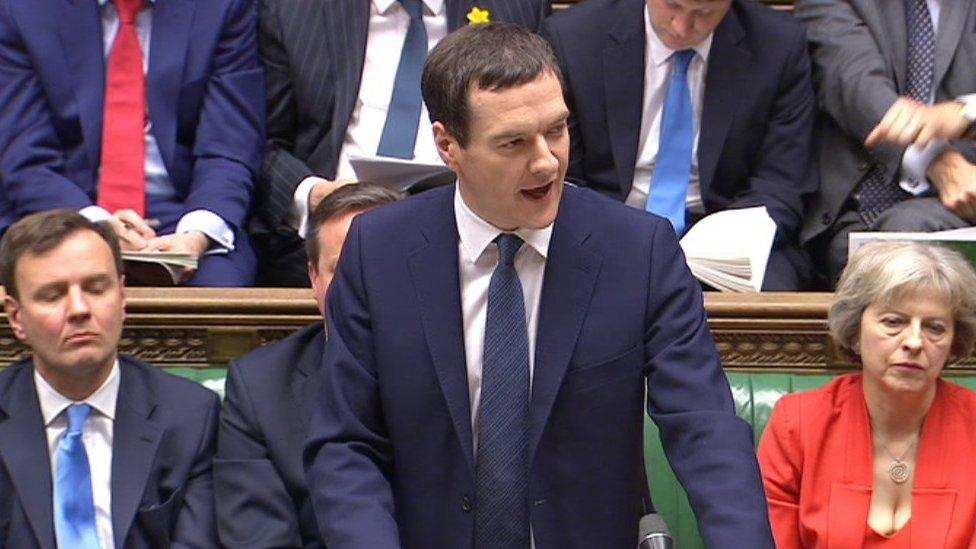Budget Day bouquets and bombshells for the Midlands
- Published
The 'Devolution Revolution'

Chancellor George Osborne referenced falling youth unemployment in the West Midlands, during his Budget speech
"Youth unemployment is falling fastest in the West Midlands."
This was George Osborne's opening salvo in a Budget statement designed to show that his much-vaunted rebalancing of the economy is fast materialising. Just three hours before he got to his feet came unemployment figures which showed a 3,000 fall in our part of the country over the last quarter to a rate of 5.4%, only fractionally higher than the national average, having been well above it during the worst days of the downturn.
As usual, the chancellor followed immediately after Prime Minister's Questions. David Cameron had done his best to establish the cheerful music for his next door neighbour, seizing on the figures as evidence that the West Midlands is going places, with the promise of that 'devolution revolution'. He pointed out the West Midlands Combined Authority was being established with a 'metro mayor' to be elected next year, with "Birmingham the Second City of our country".
One of the likely Labour candidates for mayor, former cabinet minister and MP for Birmingham Hodge Hill Liam Byrne, was emphatically unimpressed by the blandishments of the prime minister and chancellor.
He warned that Mr Osborne was delivering a "£100m bombshell' to Birmingham because of a combination of funding cuts and tax rises: delaying a "fairer funding formula" for the city until next year while introducing £5.5m of tax rises through the social care precept, which Mr Byrne says will put a further immediate squeeze on services.
A Budget for newsagents and pubs?

But if you run a Midlands newsagent's or a pub, this was the Budget for you.
Trumpeting his business-friendly raising of business rate thresholds, he said a typical newsagent in Nuneaton would pay no business rates at all.
Nuneaton? Ah, yes. George Osborne is rightly seen as a most political of chancellors. Nuneaton, you may remember, was the scene of one of the defining declarations in last May's general election.
He went on to list a series of changes to business taxation. While tightening some of the more notorious loopholes famously enjoyed by the multinationals, Mr Osborne relished his relaxation of the tax burden on our small to medium-sized businesses.
And that was where his "typical Midlands pub worth £270,000" came in. Under the changes he was announcing, the commercial stamp duty payable on that business would fall from £8,000 to £3,000.
Deepening economic uncertainty
But Camra, the real ale campaigners, would have been more impressed if he had repeated last year's cut in beer duty. His failure to do so this time was, they said, "a missed opportunity".
If so, it wasn't the only one.
The first spring Budget after a general election which produces a majority government is usually the moment when chancellors feel emboldened to do all the controversial things they really want to, but usually can't for fear of impending elections or upsetting their own backbenchers.
But with the forthcoming EU Referendum already causing ructions throughout his party, he played safe; gone were the pension reforms he clearly desires. And, because of the deepening economic uncertainty, there were fewer tax cuts too, so last year's election manifesto was not flourished as often as you suspect he would have liked.
So, a more cautious, cagey Budget than you would have expected at this stage in the electoral cycle. You can't afford to upset too many people when your majority is just 12. And you'll need their support when the party leadership comes up for election.
I told you George Osborne is the most political of chancellors.
- Published16 March 2016

- Published16 March 2016
